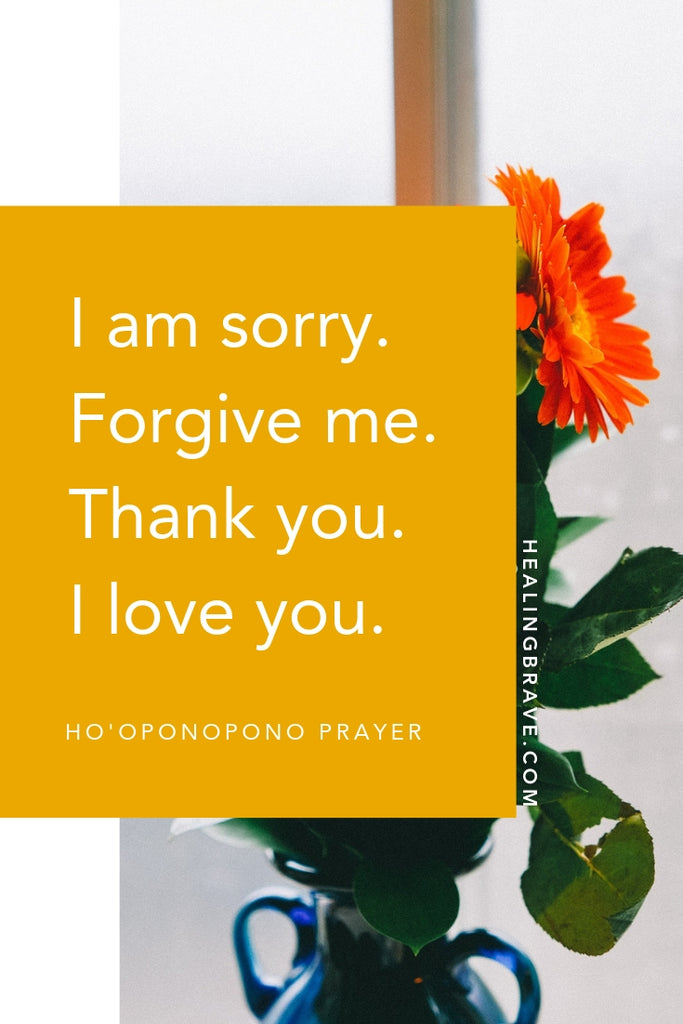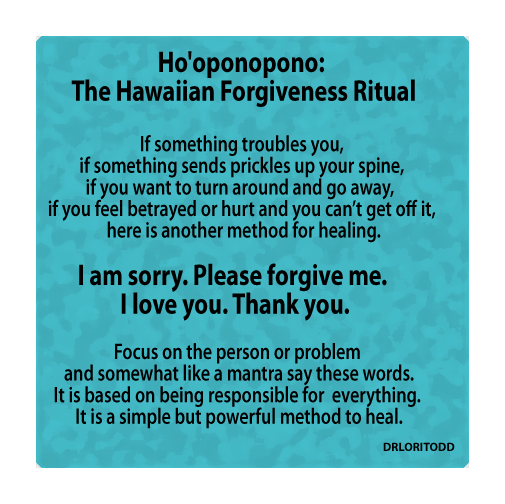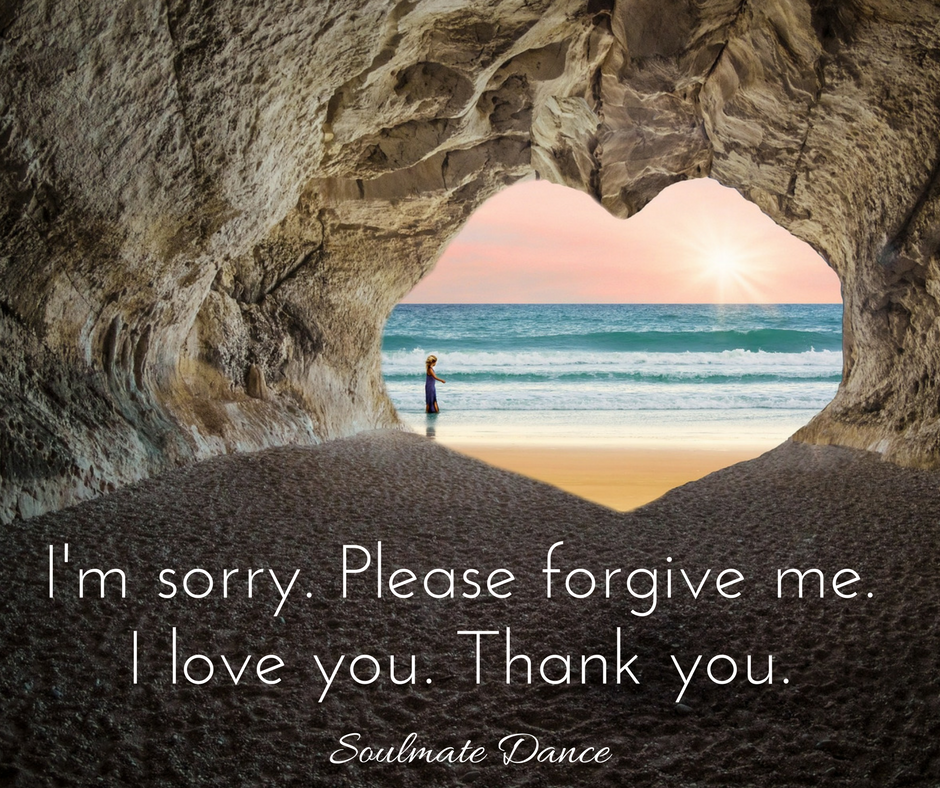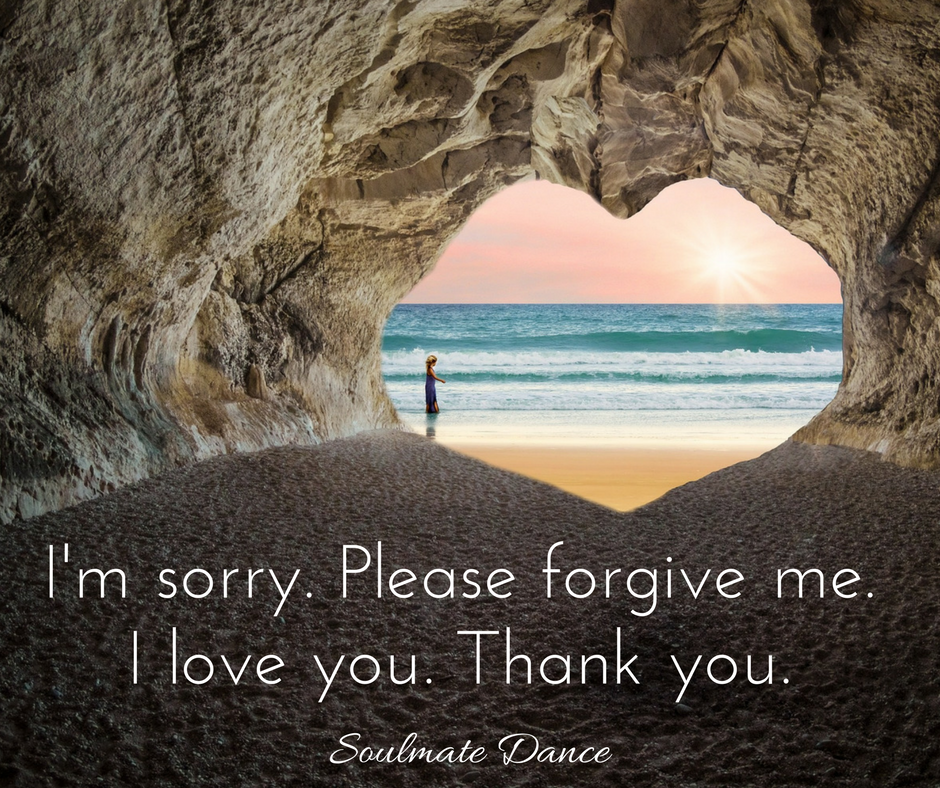Imagine a powerful practice that can heal and transform your life, bringing peace and harmony to your relationships and inner self. Ho’oponopono, an ancient Hawaiian spiritual tradition, offers just that. At the heart of this practice lies forgiveness – a fundamental element that holds the key to unlocking its transformative potential. By understanding the role of forgiveness in Ho’oponopono, you can tap into its healing power and create profound shifts in your life. Let’s explore how forgiveness serves as a catalyst for personal growth and deep healing in the practice of Ho’oponopono.
Understanding Ho’oponopono
Ho’oponopono is a traditional Hawaiian practice that has been passed down through generations as a way to bring healing and harmony into people’s lives. The word itself translates to “make it right” in English, and it reflects the core principles of this ancient practice. Ho’oponopono is believed to have originated from Polynesia and was later brought to Hawaii. Today, it is widely recognized as a powerful tool for resolving conflicts, healing relationships, and promoting personal and collective transformation.
Brief history of Ho’oponopono
Ho’oponopono has a rich history that dates back hundreds of years. It was traditionally practiced within families or communities to resolve conflicts and restore balance. The practice involves coming together in a sacred space to address and heal issues that may be causing disharmony or discord. While the exact origins of Ho’oponopono are not fully known, it is believed to have been brought to Hawaii by early Polynesian settlers. Over time, the practice has evolved and adapted to the changing cultural landscape while still remaining true to its underlying principles.
Meaning and purpose of Ho’oponopono
The overarching purpose of Ho’oponopono is to restore harmony and balance in relationships, both within ourselves and with others. The practice recognizes that our thoughts, beliefs, and emotions can contribute to imbalances and conflicts that manifest in our lives. By taking responsibility for our own experiences and offering forgiveness, we can release the negative energy that keeps us stuck in a cycle of pain and suffering. Ho’oponopono aims to promote healing, transformation, and the realization of our highest potential.
Core principles of Ho’oponopono
Ho’oponopono is guided by several core principles that form the foundation of the practice. One of the central principles is the understanding that we are all interconnected and that our actions and experiences have an impact on others. This principle emphasizes the importance of taking responsibility for our own thoughts, emotions, and actions. Another principle highlights the power of forgiveness in releasing emotional burdens and fostering healing. Ho’oponopono also emphasizes the cultivation of love, compassion, and gratitude as essential aspects of a harmonious and fulfilling life.
The Concept of Forgiveness in Ho’oponopono
Defining forgiveness in Ho’oponopono
In Ho’oponopono, forgiveness goes beyond the traditional understanding of simply pardoning or excusing someone for their actions. It is a deep and transformative process that involves releasing negative emotions, resentments, and grievances. Forgiveness in Ho’oponopono is about letting go of the past and making a conscious choice to free oneself from the emotional burdens that hinder personal growth and well-being. It is a compassionate act that allows for healing and transformation to take place within oneself and in relationships with others.
Why forgiveness is important in Ho’oponopono
Forgiveness is considered a vital aspect of Ho’oponopono because it has the power to bring about profound changes in one’s life. When we hold onto resentments and grievances, we are essentially holding ourselves captive to the past. These negative emotions weigh us down and create disharmony within ourselves and in our relationships. Forgiveness is the key to unlocking this emotional baggage and allowing space for healing and growth. It sets us free from the cycle of suffering and opens the door to new possibilities and experiences.
The relationship between forgiveness and healing
Forgiveness and healing are deeply intertwined in Ho’oponopono. When we choose to forgive, we are actively engaging in a process of emotional and spiritual healing. By releasing negative emotions and attachments, we create a space for healing energies to flow through us. Forgiveness allows us to let go of the pain and suffering associated with past hurts and grievances, and it paves the way for personal growth and transformation. Through forgiveness, we can restore harmony within ourselves and experience a renewed sense of well-being.

Forgiveness as Self-Love
Recognizing the connection between forgiveness and self-love
Forgiveness in Ho’oponopono is an act of self-love. By choosing to forgive ourselves and others, we are acknowledging our worthiness and inherent goodness. It is an affirmation that we deserve to be free from the burdens of the past and to live a life filled with love, joy, and peace. When we hold onto resentments and refuse to forgive, we are essentially denying ourselves the chance to experience true self-love and acceptance.
How forgiveness allows for self-acceptance and growth
Forgiveness is a powerful catalyst for self-acceptance and personal growth. Through the act of forgiving, we are able to release self-judgment and self-criticism. We acknowledge that we are all human and that we are capable of making mistakes. By forgiving ourselves, we create an environment of self-compassion where we can learn from our past experiences and grow into the best versions of ourselves. Forgiveness is a journey of self-discovery and allows us to embrace our authentic selves.
Developing compassion through forgiveness
Forgiveness in Ho’oponopono is rooted in compassion. By extending forgiveness to ourselves and others, we cultivate a greater sense of empathy and understanding. We recognize that everyone is on their own journey and that we all make mistakes. Through forgiveness, we develop the capacity to see beyond the actions and behaviors of others and connect with the shared humanity that binds us together. It is through this cultivation of compassion that we can foster deeper connections and create a more harmonious world.
The Process of Forgiveness in Ho’oponopono
Identifying and acknowledging past hurts and grievances
The process of forgiveness in Ho’oponopono begins with identifying and acknowledging past hurts and grievances. This requires a willingness to confront and accept the pain that has been caused, both by others and by ourselves. It may involve reflecting on past experiences, journaling, or seeking the support of a therapist or spiritual guide. By shining a light on these unresolved emotions, we can begin the process of healing and transformation.
Taking responsibility for our actions and experiences
Ho’oponopono emphasizes the importance of taking responsibility for our own actions and experiences. This includes acknowledging our role in creating the situations that have caused pain or disharmony. By recognizing our own contributions, we can begin to shift our perspective and take ownership of our healing journey. Taking responsibility does not mean blaming ourselves or others, but rather acknowledging the power we have to choose forgiveness and create positive change.
Releasing negative emotions through forgiveness
The final step in the process of forgiveness in Ho’oponopono is releasing negative emotions and attachments. This can be done through the practice of Ho’oponopono itself, which typically involves repeating four key phrases: “I’m sorry, please forgive me, thank you, I love you.” These phrases are directed towards oneself, others, and the divine. The repetition of these phrases helps to clear and release the negative energy associated with past hurts and grievances. Through this process, we create space for healing, transformation, and the cultivation of inner peace.

Healing and Transformation Through Forgiveness
The power of forgiveness in releasing emotional burdens
Forgiveness holds immense power in releasing emotional burdens and freeing ourselves from the weight of the past. When we hold onto resentments and grievances, we are essentially carrying around emotional baggage that hinders our well-being and growth. Through the practice of forgiveness, we can let go of these burdens and create space for healing. By releasing negative emotions, we open ourselves up to experiencing greater levels of joy, peace, and fulfillment.
Healing relationships through forgiveness
Forgiveness is also a potent tool for healing and transforming relationships. When conflicts arise, a lack of forgiveness can create a barrier to resolution and reconciliation. By choosing to forgive, we open the doors to healing and restoring trust and connection. Forgiveness allows us to move beyond the pain and hurt, and to create an environment of love and understanding. It is through the act of forgiveness that relationships can find renewed strength and resilience.
Transforming personal and collective consciousness through forgiveness
Forgiveness has the power to transform not only our individual lives but also the collective consciousness of our communities and the world. When we choose forgiveness, we contribute to a shift in energy and mindset. Forgiveness has a ripple effect, inspiring others to let go of their own grievances and resentments. It is through this collective forgiveness that we can begin to create a more harmonious and compassionate world. Through forgiveness, we lay the foundations for lasting peace and understanding.
Letting Go of Resentment and Grudges
The detrimental effects of holding onto resentment and grudges
Holding onto resentment and grudges can have detrimental effects on our mental, emotional, and physical well-being. When we harbor negative emotions towards others, we are essentially allowing these emotions to consume us. Resentment and grudges can manifest as stress, anxiety, and even physical health issues. By holding onto these negative emotions, we are perpetuating the pain and suffering that we seek to release. Letting go of resentment and grudges is essential for our own personal growth and well-being.
How forgiveness frees us from emotional baggage
Forgiveness is the key to freeing ourselves from the emotional baggage that weighs us down. When we forgive, we are actively choosing to release the negative energy and emotions associated with past hurts. This act of letting go allows us to move forward with a sense of lightness and freedom. Forgiveness does not mean forgetting or condoning the actions of others, but rather it is a conscious choice to release ourselves from the burden of carrying these negative emotions.
Practical techniques for letting go and forgiving
Letting go and forgiving can be challenging, especially when the pain runs deep. However, there are practical techniques that can assist in the process. Writing a forgiveness letter to yourself or to the person who has caused you pain can be a powerful way to express your emotions and let go. Engaging in mindful practices such as meditation or deep breathing can help to calm the mind and cultivate a sense of peace. Seeking the support of a therapist or spiritual guide can also provide guidance and assistance on the journey of forgiveness.

Cultivating Forgiveness in Ho’oponopono Practice
Rituals and practices for forgiveness in Ho’oponopono
Ho’oponopono offers several rituals and practices that can be incorporated into a forgiveness practice. One such practice involves the use of the four key phrases: “I’m sorry, please forgive me, thank you, I love you.” These phrases are repeated as a way to release negative emotions, seek forgiveness, express gratitude, and cultivate love and compassion. Another ritual involves creating a sacred space where individuals can come together to engage in the forgiveness process. This space serves as a container for healing and transformation.
Incorporating forgiveness into daily life
Forgiveness is not a one-time event but a continuous practice that can be incorporated into daily life. It involves cultivating a mindset of compassion, understanding, and empathy towards oneself and others. This can be done through daily affirmations, journaling, or simply reminding oneself to let go of resentments and judgments. Regularly engaging in self-reflection and self-forgiveness is also essential for maintaining a forgiveness mindset. By making forgiveness a part of our daily lives, we create a foundation for personal growth and a more harmonious existence.
Maintaining a forgiveness mindset
Maintaining a forgiveness mindset requires ongoing effort and self-awareness. It involves staying present to our thoughts and emotions and actively choosing forgiveness over resentment. It also necessitates practicing self-compassion and self-forgiveness, as we are bound to make mistakes along the way. Cultivating a forgiveness mindset involves letting go of the need to be right and embracing the transformative power of love and understanding. By doing so, we create space for healing, growth, and the realization of our highest potential.
Ho’oponopono and Forgiveness in Relationships
The role of forgiveness in healing and strengthening relationships
Forgiveness plays a crucial role in healing and strengthening relationships. When conflicts arise, forgiveness allows for resolution and reconciliation to occur. It opens the door for communication and understanding, and it fosters empathy and compassion. Without forgiveness, relationships can become stagnant, filled with resentment and pain. By choosing forgiveness, we create an environment where trust can be rebuilt, and connections can deepen. Forgiving others and ourselves is essential for nurturing healthy and fulfilling relationships.
Resolving conflicts through forgiveness in Ho’oponopono
Ho’oponopono provides a framework for resolving conflicts through forgiveness. When conflicts arise, individuals can come together in a sacred space to engage in the forgiveness process. Each person is given an opportunity to express their emotions and share their perspective. Through the practice of Ho’oponopono, forgiveness can be sought and given, allowing for the resolution of conflicts in a respectful and compassionate manner. By engaging in this process, relationships can be healed, and a deeper sense of understanding can be cultivated.
Building trust and connection through forgiveness
Trust is a foundational element in any relationship, and forgiveness is essential for building and maintaining trust. When one party forgives another, it creates an opportunity for the restoration of trust and the rebuilding of the relationship. Forgiveness allows for a fresh start, free from the burdens of the past. It fosters open communication, vulnerability, and authenticity. Through the act of forgiving, individuals can create a safe and nurturing environment where trust and connection can flourish.

Forgiveness and Self-Healing in Ho’oponopono
Using forgiveness for self-healing and personal growth
Forgiveness in Ho’oponopono is a powerful tool for self-healing and personal growth. When we choose to forgive, we release the negative emotions and limiting beliefs that hold us back from living a fulfilling life. Forgiveness allows us to let go of self-judgment and embrace self-compassion. It is through the act of forgiveness that we can heal emotional wounds, transform negative patterns, and cultivate a sense of inner peace and harmony. By extending forgiveness to ourselves, we create an environment of self-love and acceptance.
Releasing self-judgment and self-criticism through forgiveness
Self-judgment and self-criticism are often barriers to self-healing and personal growth. When we hold onto past mistakes or failures, we are essentially perpetuating a cycle of self-sabotage and self-doubt. Forgiveness offers a way out of this cycle by allowing us to release self-judgment and embrace self-acceptance. Through forgiveness, we acknowledge that we are all human and that making mistakes is a part of the learning process. By forgiving ourselves, we create space for growth, self-compassion, and inner transformation.
Creating inner harmony and balance
Forgiveness in Ho’oponopono is a pathway to creating inner harmony and balance. When we forgive, we release the negative energy and emotions that disrupt our internal equilibrium. This act of letting go allows us to align with our true selves and tap into our innate wisdom and intuition. Forgiveness brings about a sense of peace, wholeness, and connection with our higher selves. It is through the practice of forgiveness that we can cultivate a deep sense of inner harmony and balance that radiates into all aspects of our lives.
The Continued Practice of Forgiveness in Ho’oponopono
The ongoing nature of forgiveness in Ho’oponopono
Forgiveness is an ongoing practice in Ho’oponopono. It is not a one-time event but a continuous journey of self-discovery and growth. The process of forgiveness requires patience, persistence, and self-reflection. As we navigate through life, new challenges and conflicts may arise, and it is through forgiveness that we can find resolution and healing. The ongoing practice of forgiveness in Ho’oponopono allows us to evolve and transform, continually deepening our capacity for love, compassion, and understanding.
Overcoming challenges and obstacles in the forgiveness process
The forgiveness process in Ho’oponopono may present challenges and obstacles along the way. It is common to encounter resistance, fear, or a reluctance to let go of past hurts and grievances. It is important to remember that forgiveness is a personal journey and can take time. It requires self-compassion, patience, and a willingness to confront and address the underlying emotions that hinder forgiveness. Seeking the support of a therapist, spiritual guide, or support group can provide guidance and assistance in navigating these challenges and obstacles.
The ripple effect of forgiveness in our lives and the world
The practice of forgiveness in Ho’oponopono has a ripple effect that extends beyond ourselves and into the world. When we choose forgiveness, we create a positive shift in our own lives, which then radiates outwards. The forgiveness we extend to others inspires them to let go of their own grievances and resentments. As more individuals embrace forgiveness, the collective consciousness begins to transform. It is through this ripple effect that we can create a more peaceful, loving, and harmonious world.
In conclusion, forgiveness is a central pillar of Ho’oponopono. By understanding the history, meaning, and purpose of Ho’oponopono, we can grasp the profound role forgiveness plays in this ancient practice. Forgiveness is not only a means of resolving conflicts and healing relationships, but it is also a powerful act of self-love and personal growth. The process of forgiveness in Ho’oponopono involves identifying and acknowledging past hurts, taking responsibility for our experiences, and releasing negative emotions. Through forgiveness, we can experience healing, transformation, and the cultivation of inner harmony. The ongoing practice of forgiveness in Ho’oponopono has the power to bring about profound changes in our own lives and in the world around us. It is through forgiveness that we can create a more compassionate, loving, and harmonious existence.

